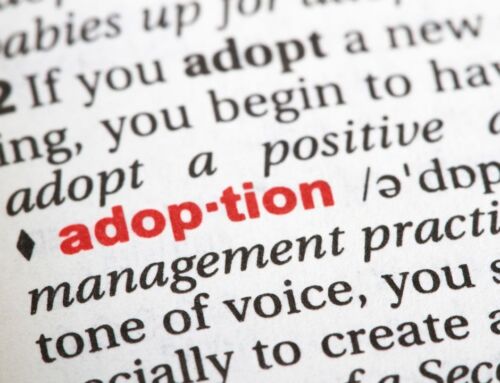Talking About Adoption: Say This, Not That
May 13, 2024

Language matters, and this idea is especially true when it comes to adoption. By using neutral adoption language – also sometimes called respectful adoption language – you can acknowledge the experiences of birth parents, adoptive families and adoptees with both respect and support.
Don’t say: Give my baby up for adoption
Say: Place into adoption
When talking about adoption, it’s common for people to say “give my baby up for adoption” or “put my child up for adoption” – but that’s language most adoption professionals try to avoid. To “give up your baby” implies a lack of concern, thought or preparation. It also objectifies the child. We give things away, not people.
Do you know where the saying “put a child up for adoption” comes from? It began in the mid-1800s with orphans being put on trains, and then picked by families who needed help with labor or household duties. Adoption has come a long way since those days!
An expectant parent who is choosing adoption for their child is making a careful, intentional choice. The phrase “place into adoption” better conveys the consideration that went into making this life-altering decision.
Don’t say: Birth parent
Say: Expectant Parent
“Birth parent” is sometimes appropriate, but only after she or he have terminated their parental rights. Prior to relinquishment, the mother and father should be referred to as “expectant parents” or, if the baby is already born, simply as the “parents.” Referring to them to “birth parents” before the adoption takes place implies that they have already made a final decision and are committed to moving forward with placement. However, until the relinquishment paperwork is signed, the expectant parents are only making an adoption plan and reserve the right to choose parenting their child.
Don’t Say: Keep my baby
Say: Parent my child
To “keep” something implies that we are in possession of the object – and a child is neither a possession nor an object. It also boils the decision down to a single action, when in reality, choosing to parent your child is an ongoing commitment.
Don’s Say: Real parent
Say: Birth parent or first parent
Unless they are imaginary, all parents are real parents. Referring to biological parents as the “real parents” devalues the daily love, support and care that adoptive parents provide every day. It also minimizes the relationship between the adoptive family and the adoptee, which can negatively affect everyone.
Overall, neutral adoption language promotes a more inclusive, supportive, and compassionate approach to adoption. It can help frame adoption as a positive choice that prioritizes the well-being of the child.








